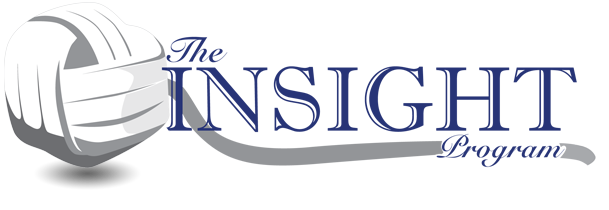5 Key Signs: When is it time for drug rehab?
One of the scariest decisions many of us have ever had to make was the decision about whether or not to get professional help for a substance use disorder. Not only is this a daunting proposition, but it can feel as though there are so many options that it’s tough to know where to start.
As a drug and alcohol treatment program for teens and young adults, we see different levels of substance abuse, some who have only been using for six months and some who have been using drugs and alcohol for 10 years or more. It’s common for drug users (and parents of drug users) we meet to wonder how they should know that a full treatment program is in order. Hopefully, we can shed some light on this issue in this article: when is it time for drug rehab?
When deciding whether or not an individual needs drug and alcohol rehab, there are 5 key indicators we look for:
- When substance use becomes unmanageable
- Escalating tolerance and dependence
- Social and relational issues
- Justification
- Failed attempts to quit
5 Key signs that it’s time for drug rehab
1. Substance use has become unmanageable
When a person is introduced to substances, they often feel that they can manage or control their use. However, it’s hard to really be aware when they have crossed that line into substance abuse.
Unmanageability refers to the inability to control or regulate one’s drug or alcohol consumption, leading to negative consequences in various areas of life.
If you are experiencing any of the following signs you may want to consider getting professional help:
- School or work life begins to suffer as a result of use
- Miss important events or obligations
- Continued use after experiencing consequences, such as suspension from school or getting grounded
- Continued use despite known problems or dangers
- Spend excessive resources and time trying to obtain substances
- Struggle to stop once you start using
- Struggle to control the amount that you consume
Unmanageability is one of the main indicators that it may be time for a rehab program, and it can manifest in many ways. It signifies that professional help may be required to recover from the individual’s substance use.
2. Escalating tolerance and dependence
Escalating tolerance and dependence indicate that substance use has reached a critical point and may necessitate attention.
Tolerance happens when continued use causes the body and brain to adapt to the substance, and usually requires the person to use higher amounts to achieve the desired effect. As tolerance increases, individuals may find themselves consuming larger quantities of the substance or using it more frequently.
To illustrate the point of substance use dependency to parents and substance users, we often utilize a hypothetical scale: on the high end of the scale is pleasure, the low end is pain, and in-between represents normalcy. Through the process of using substances, users undergo three distinct phases:
- When someone first tries a substance, they experience jumping from normal to immense pleasure.
- Once the individual sobers up, their new “normal” is lowered slightly, and the “high” of doing drugs again is slightly lower than before.
- Over time, the individual’s “normal” (read: sober) emotional state is pain, and they must use drugs to achieve a sense of normalcy.
Once a user has reached “stage 3” above, it becomes very difficult for them to solve their problems on their own. This is the level that most of us would label “addiction.”
Understanding and recognizing escalating tolerance and dependence is a crucial step toward seeking help. Addressing substance use at this stage can also dramatically cut the amount of time it takes to feel better sober.
3. Social and relational issues
Substance use disorders have a profound impact on relationships, causing strain, lack of trust in the relationship, and conflict among family members, friends, and loved ones. Substance users often become withdrawn from relationships, because they are receiving instant gratification from their drug use.
There are 3 patterns of use that usually cause issues in social and family relationships that should not be overlooked:
- Prioritization of substances: Individuals struggling with substance abuse often prioritize obtaining and using drugs or alcohol over maintaining relationships. As a result, they may become unreliable, dishonest, and manipulative.
- Isolation: Addiction has a tendency to isolate individuals, leading them to withdraw from social activities and avoid situations where substance use is limited or prohibited. This self-imposed isolation widens the gap between the person and their support network, intensifying the adverse effects of substance abuse.
- Negative Behavior Patterns: substance abuse can lead to erratic behavior, mood swings, and impaired judgment about substance use making it difficult for individuals to maintain communication and social interactions. This lack of communication can strain relationships and create a disconnect leading further to isolation.
Recognizing the impact of substance abuse on social and relational issues is crucial for determining the need for drug rehab.
4. Justification
When individuals find themselves justifying their substance use, it is often a sign that their relationship with drugs or alcohol has become problematic.
Justification becomes a barrier for people struggling with substance use, to getting or asking for help.
Many who justify their use often say things such as, “I have friends who use more than I do,” or, “I would quit if I had a good reason.”
When individuals continuously justify their substance use, it signifies a loss of control over their consumption. In the context of justification, individuals employ various methods:
- Denial: Some may deny the gravity of their addiction and the adverse impact it has on their lives.
- Rationalization: They engage in the process of rationalizing and downplaying the negative consequences associated with substance abuse.
- Coping Mechanism: Individuals convince themselves that drugs or alcohol are necessary for managing stress, escaping from problems, or improving their mood.
- Minimization: They downplay the detrimental effects of substance abuse on their health, relationships, and overall well-being.
This pattern of justification is a defense mechanism that allows individuals to maintain their substance use while ignoring the reality of its destructive impact. It creates a psychological barrier that prevents them from acknowledging the need for professional help.
5. Failed attempts to quit
When someone repeatedly tries to quit using drugs or alcohol but finds themselves falling back into old habits, it demonstrates the power of addiction. Failed attempts to quit can leave individuals feeling frustrated, defeated, and trapped in an endless cycle of substance use.
The inability to quit highlights the profound hold addiction has on an individual. It is not a sign of weakness, but rather a testament to the complexities of addiction and that you don’t have to do this alone.
Failed attempts to quit should be seen as a turning point—a realization that professional help is necessary to break free from the cycle of addiction. Hitting rock bottom from failed attempts to quit can be an opportunity to seek the support and guidance that can make a significant difference in achieving and maintaining a drug-free life.
Next steps
Perhaps you’ve recognized characteristics of your own (or a loved one’s) substance use in the above five signs that it’s time for drug rehab. If that’s the case, we recommend that your next step be to get in touch with a professional who can guide you and make recommendations based on experience with addiction and substance use disorder, such as:
If you’re anywhere in the Southeastern United States, and would like to complete a phone call or evaluation, feel free to get in touch with us. We’d be more than happy to help answer any questions and guide you in the right direction.







